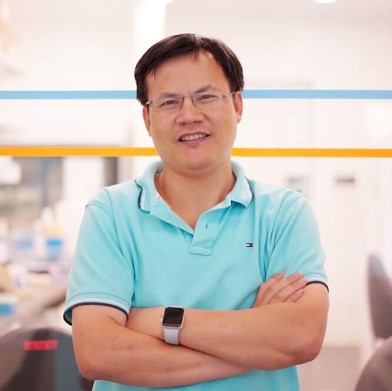
搜索网站、位置和人员

新闻与活动 活动信息
西湖名师论坛第125期 | Haoxin Xu:Molecular Physiology of Lysosomes
时间
2022年11月1日(周二)
16:00-17:30
地点
云栖校区5号楼学术报告厅
主持
西湖大学生命科学学院特聘研究员 吴建平
受众
全体师生
分类
学术与研究
西湖名师论坛第125期 | Haoxin Xu:Molecular Physiology of Lysosomes
时间:2022年11月1日(周二)16:00~17:30
Time:4:00-5:30 PM, Tuesday, November. 1, 2022
地点:云栖校区5号楼学术报告厅
Venue: Lecture Hall, Building 5, Yunqi Campus
主持人:西湖大学生命科学学院特聘研究员 吴建平
Host: Dr. Jianping Wu, PI of School of Life Sciences
主讲人/Speaker:

Haoxin Xu
Qiushi Chair Professor, Liangzhu Laboratory & Zhejiang University Medical Center
Dean, School of Basic Medical Sciences, Zhejiang University
Professor (Adjunct), Department of MCD Biology, the University of Michigan
Haoxing Xu received his undergraduate degree from Peking University, Ph.D from Georgia State University, and postdoctoral training with David Clapham at Children's Hospital Boston. He then joined the University of Michigan in 2007 where he is a professor at the Department of Molecular, Cellular and Developmental Biology. He is currently a Chair Professor at Liangzhu Laboratory & Zhejiang University Medical Center, and Dean of School of Basic Medical Sciences, Zhejiang University. Dr. Xu has received multiple faculty awards including the Sloan Fellowship (Alfred P. Sloan Foundation), the Presidential Early Career Award for Sciences and Engineers (White House), and Henry Russel Award and Faculty Recognition Award (University of Michigan). In 2015, Dr. Xu co-founded Gordon Research Conference (GRC) on “Organellar Channels and Transporters”.
报告题目/Title:
Molecular Physiology of Lysosomes
讲座摘要/Abstract:
More than 50 human diseases collectively called lysosome storage diseases (LSDs) are the result of problems in trafficking to, degradation within, or export from lysosomes. Emerging evidence suggests that common neurodegenerative diseases such as Alzheimer’s disease (AD) and Parkinson’s disease (PD) are also lysosomal (dysfunction) disorders. In response to cellular cues in the endocytic and autophagic pathways, lysosomes use H+ flux to establish the working environment for hydrolases, H+, Na+, K+, and Cl- fluxes to establish the lysosomal membrane potential (Dy) essential for driving catabolite export, and Ca2+ and H+ channels to carry the signals needed for precise delivery of cargo and hydrolases, as well as timely removal of catabolites.
Dr. Xu has developed a unique research program for understanding the cell biology of lysosomes, and its relationship to lysosomal storage disorders and common neurodegenerative diseases such as AD and PD. This program combines electrophysiological and imaging approaches typically used to study plasma membrane ion channels with molecular and biochemical approaches typically used to understand organelle function. The combined approach has allowed his lab to find eight lysosomal ion channels (Ca2+, Na+, K+, Fe2+/Zn2+, Cl-, and H+) and identify the activating cellular cue for each of them. With his unique and combined expertise in both organellar electrophysiology and chemical cell biology, Dr. Xu’s work may not only reveal at the molecular level how information exchange occurs rapidly between the lysosomal lumen and cytosol, but also lead to new therapeutic approaches to treating lysosomal diseases.
讲座联系人/Contact:
科技合作部 sci-tech02@westlake.edu.cn

















